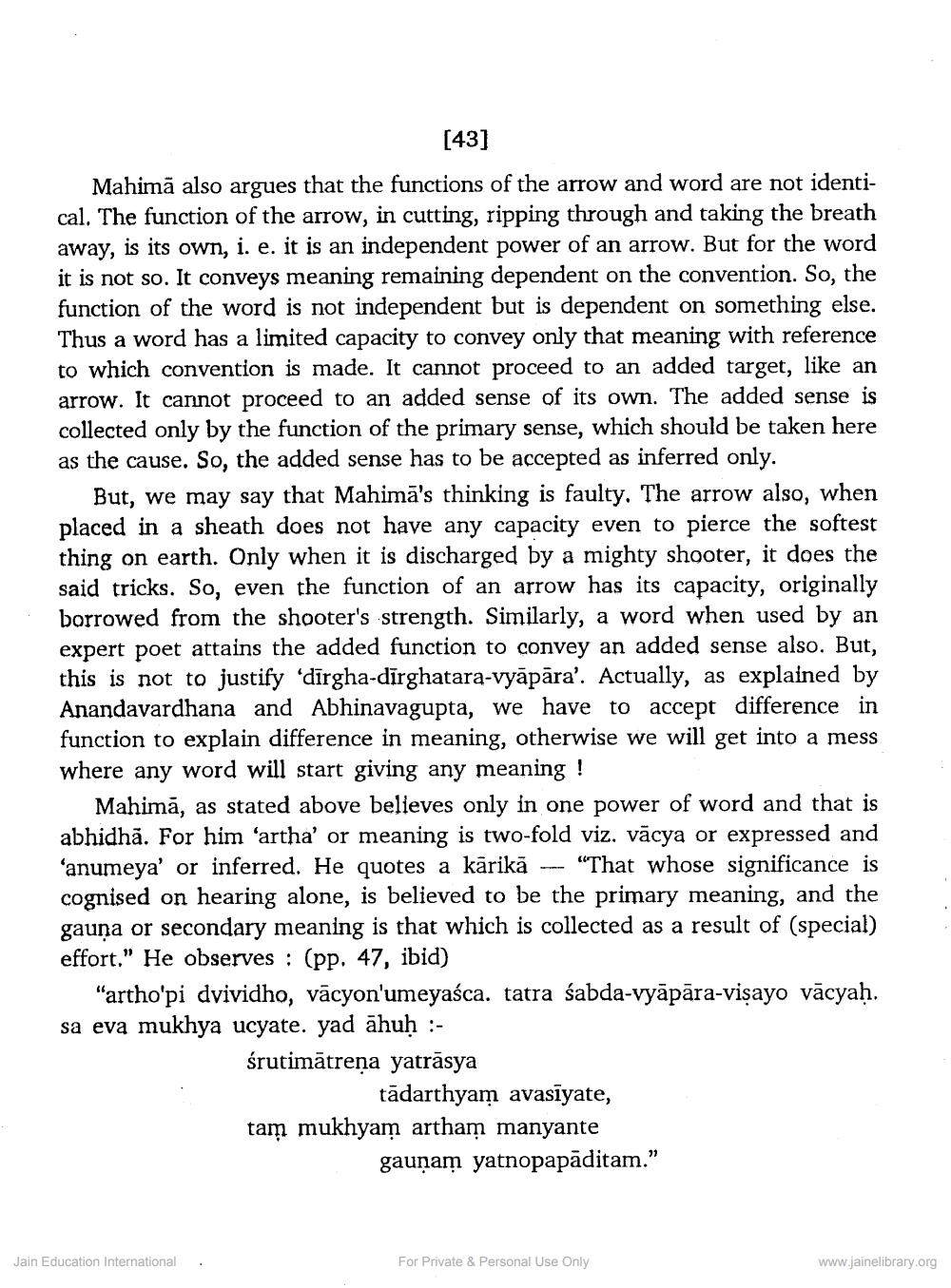________________
[43]
Mahimā also argues that the functions of the arrow and word are not identical. The function of the arrow, in cutting, ripping through and taking the breath away, is its own, i. e. it is an independent power of an arrow. But for the word it is not so. It conveys meaning remaining dependent on the convention. So, the function of the word is not independent but is dependent on something else. Thus a word has a limited capacity to convey only that meaning with reference to which convention is made. It cannot proceed to an added target, like an arrow. It cannot proceed to an added sense of its own. The added sense is collected only by the function of the primary sense, which should be taken here as the cause. So, the added sense has to be accepted as inferred only.
But, we may say that Mahimā's thinking is faulty. The arrow also, when placed in a sheath does not have any capacity even to pierce the softest thing on earth. Only when it is discharged by a mighty shooter, it does the said tricks. So, even the function of an arrow has its capacity, originally borrowed from the shooter's strength. Similarly, a word when used by an expert poet attains the added function to convey an added sense also. But, this is not to justify 'dirgha-dirghatara-vyāpāra'. Actually, as explained by Anandavardhana and Abhinavagupta, we have to accept difference in function to explain difference in meaning, otherwise we will get into a mess where any word will start giving any meaning !
Mahimă, as stated above believes only in one power of word and that is abhidhā. For him ‘artha' or meaning is two-fold viz. vācya or expressed and ‘anumeya' or inferred. He quotes a kārikā -- "That whose significance is cognised on hearing alone, is believed to be the primary meaning, and the gauņa or secondary meaning is that which is collected as a result of (special) effort.” He observes : (pp. 47, ibid)
"artho'pi dvividho, vācyon'umeyaśca. tatra śabda-vyāpāra-visayo vācyaḥ. sa eva mukhya ucyate. yad āhuḥ :
śrutimātrena yatrāsya
tādarthyam avasīyate, tam mukhyam artham manyante
gauņam yatnopapāditam."
Jain Education International
.
For Private & Personal Use Only
www.jainelibrary.org




